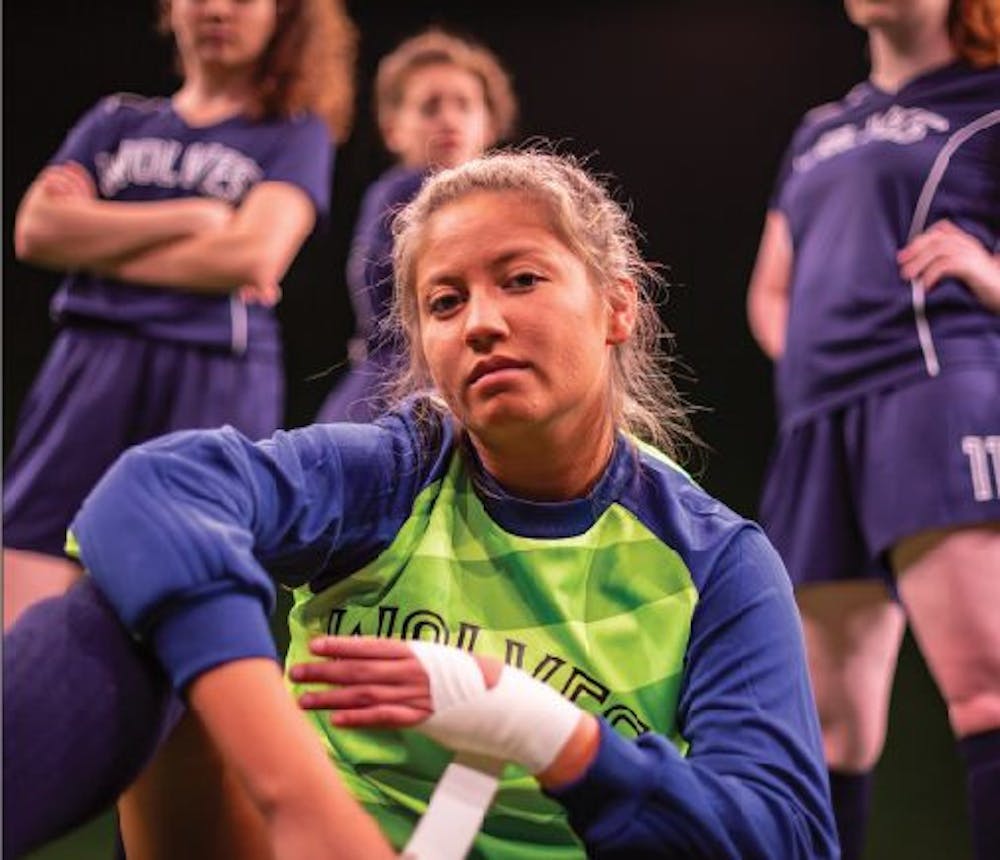Days before the Gainesville Orchestra’s annual spring concert, Greg Johnson opened his email. Inside, a message from the state shocked the orchestra president. The orchestra’s state funding was gone.
Johnson still prepared himself for the show.
He stood in front of the crowd of hundreds before the music began. He told the audience and musicians that they wouldn’t see a dime of the $25,000 that had — up until this year — been allotted annually. They gasped.
State funding to arts programs in Alachua County fell from 46 percent of what’s requested to just six percent, blindsiding local cultural organizations and forcing them to find other ways to exit the year financially sound, according to Judy Skinner, a Dance Alive National Ballet grant writer. Other counties statewide saw this drastic decrease, too. Florida experienced one of the largest drops in the country’s state funding to the arts this fiscal year: from No. 10 to No. 48.
“I nearly died,” Skinner said. “Up until a week before, no one in the arts had any inclination that this was going to happen.”
Dance Alive National Ballet is dependent on state grants to make up about $78,000 of its more than $700,000 budget, Skinner said. It was awarded $5,233.
The company isn’t the only local cultural organization to feel the burden of these cuts, she explained. Fifteen Gainesville organizations collectively qualified for $1.27 million of state funding. They got $76,610, she said.
The cuts to the arts don’t make fiscal sense because it is a driver of tourism, Skinner said.
“It would be wonderful if our state would recognize the value of who and what we are to the state,” Skinner said.
The arts cut went to funding school safety after the Feb. 14 shooting at Marjory Stoneman Douglas High School, State Senator Keith Perry (R-Gainesville) said. A $400 million plan passed by the legislature provides for additional school resource officers, mental health counselors and other security measures.
The money was well spent, Perry says, but the brunt of the impact shouldn’t have been pushed on the arts.
“I thought we should have found places to spread the pain around,” he said.
For the next fiscal year, Perry hopes to bring the state back into the top 10 funders of the arts. He started meeting with donors to find ways to allocate more money. Perry himself donated from his company, Perry Roofing Contractors.
Despite the drop in resources, the Gainesville Orchestra continues to play.
After first discovering that it wouldn’t receive state money, the orchestra got a second email from the state offering $2,500. Despite the paperwork — at least 50 pages worth — Johnson said he will do what he can to secure that small amount.
Johnson says he hopes to make up the difference through increased ticket sales and fundraising.
“When all is said and done, we’re going to be OK,” he said.
The orchestra has sold more than 50 percent of its November performance seats. In addition, four of the last five concerts have sold out, he said.
Part of the orchestra’s success has also lied in its refusal to expect a certain amount of funding.
“We’ve been fortunate in that we haven’t relied heavily on grants because we know we can’t,” Johnson said.
Unlike the orchestra, downtown Gainesville’s The Hippodrome State Theatre cannot make up the difference with increased ticket sales or prices, said Jessica Hurov, its managing director.
“We don’t want to pass on this to our customers,” Hurov said. “We are extremely committed to making the arts as accessible to as many people as we can.”
The theatre plans to make up some of the difference through fundraisers, collaborations with UF and donations.
Supporters have posted their concerns on the theatre’s Facebook page: “How can they do this?” and “This is so devastating.”
Local restaurants started hosting benefit nights to support the Hippodrome, Hurov said.
The Paramount Grill now holds “Hipp Tuesdays,” where 10 percent of each bill on Tuesdays throughout the year will go toward the Hippodrome’s deficit.
With possible layoffs looming, the theatre’s atmosphere has changed. Jordan Sison, a 21-year-old UF acting senior who is performing in “The Wolves” at the Hippodrome, said she’s trying not to think of the negatives. Instead, she’s hopeful.
“People want to make a difference and a change,” she said.
The theatre provides value beyond weekend entertainment, she said. It serves as an educational center of the community, serving dually as a place for young actors to earn points needed to be recognized by the acting community and middle schoolers to be introduced to theatre.
“Theatre brings people together and educates people and teaches people how to be empathetic toward others,” she said. “To cut something that’s so educational and important in people’s lives is a travesty.”
Contact Bailey LeFever at blefever@alligator.org and follow her on Twitter at @blefever10
Jordan Sison, a 21-year-old UF acting senior, performs in her senior thesis performance, “The Wolves,” at the Hippodrome Theatre.






